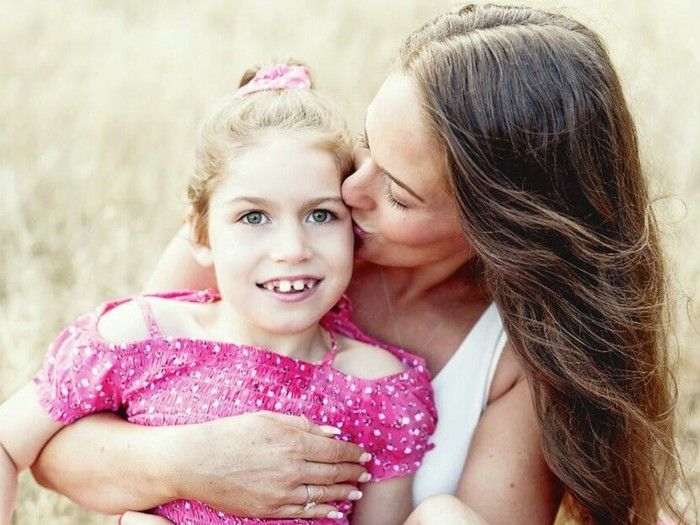
On June 18, Health Minister Josie Osborne announced the province would be cutting off coverage of the drug Brineura for nine-year-old Charleigh Pollock after a panel of independent experts determined the expensive medication was no longer working to beat back Pollock’s rare degenerative brain disorder.
Pollock, who lives on Vancouver Island, is the only person in B.C. with Batten disease. Children with the disease usually die in their early to mid teens. People diagnosed at an older age can live to their 20s or even 30s.
The decision to cut coverage of Brineura, which can cost upwards of $1 million a year, was not taken lightly, according to Osborne, and that it had nothing to do with the price tag but rather to do with what experts felt was a lack of efficacy of the drug to extend Pollock’s life.
“Last year, it was determined that Charleigh’s condition had progressed to the point where she met the discontinuation criteria for Brineura,” Osborne told reporters at the time. “I know this is not what Charleigh’s family wanted to hear. It’s not what any of us wanted to hear.”
Jori Fales, Pollock’s mom, has derided the decision, saying that her daughter’s medical teams believes the drug is still working to alleviate her seizures and other symptoms. The cut off of coverage came the day before Pollock’s final dose.
Urgings by Fales and the family’s doctor failed to gain a reprieve, however, with Premier David Eby stating last week that politicians should not be allowed to go against independent medical recommendations.
Here are four things you need to know:
What is Batten disease?
Batten disease, also known as neuronal ceroid lipofuscinoses, is a rare genetic neurodegenerative disorder that only affects between 1 and 35 babies per 500,000, according to the Canadian Institutes of Health Research.
Diagnosis usually occurs around the age of three but the disease can also remain dormant until early teens, with initial symptoms including seizures, loss of vision and declining motor skills.
Eventually the disease takes away the child’s ability to see, walk, talk and swallow, with fatalities often happening only a few years after onset, although those who are diagnosed in their teens can live to early adulthood and sometimes into their 30s.
Pollock was diagnosed at age three and her disease has so far taken her ability to speak and walk, but her parents say the disease has slowed due to Brineura and her quality of life is improved because of the medication.
Dr. Ineka Whiteman, head researcher for the Batten Disease Support and Research Association in the U.S. and Australia, said there are 13 types of the disease and the type that Pollock has, CLN2, normally has a life expectancy of 10-12 years without treatment.
Why is the government cutting funding?
The government is cutting coverage of Brineura because a panel of experts from Canada’s Drug Agency said she has reached the end-of-life stage of Batten disease and that there is little more the drug can do to help her.
Whiteman said this conclusion isn’t based on any evidence, however, as the Canadian drug agency review found there was insufficient evidence to determine what the discontinuation criteria should be for children on Brineura.
She said she believes the decision came down to money more than anything else, although the government disagrees that is the case.
“According to the clinical experts, who are Charlie’s own treating team, she’s still benefiting,” said Whiteman.
The government’s “not looking at the bigger picture and the depth of expertise globally who are in agreement that Charlie is still benefiting from this drug and really should not be removed from Brineura.”
How effective is the treatment?
Whiteman said all the evidence says Brineura is effective, particularly for those who start before being diagnosed because they are determined to have a high chance of having it passed down from a family member.
For those who start the drug after being diagnosed, the results are less positive but still much better than if they weren’t treated at all.
“We know from the clinical trials that it does slow the progression of the disease symptoms considerably, but the later a child starts on Brineura, the outcome looks a little different for those children, but we do know that it still slows the disease progression and extends the lifespan for the child,” said Whiteman.
What has the reaction been?
Fales has said the family is devastated by the decision and is hoping the province will reconsider. She wrote in a social media post that she doesn’t know what life will mean for Charleigh as she will miss her first scheduled dose of Brineura this week.
“It’s alarming to me that a government-appointed body can override the clinical care plan carefully developed by our medical team, especially when it’s our medical team that knows Charleigh the best.”
Fales and Whiteman plan to meet with Osborne on Friday and hope to convince the minister to reverse course.
Some observers say the government has actually made the right choice in this case, as hard as it was.
Terry Lake, a former B.C. Liberal minister of health, said it is important the province weigh the potential benefits against the overall cost.
“Money is not unlimited, and so if a drug is costing a lot of taxpayer dollars, and not in the eyes of experts making a meaningful difference to the patient, and despite what you would kind of like to do to support the family, you have to make a decision that it doesn’t fit the criteria and that money can be used in other ways to help other people,” Lake told Postmedia.
He said Osborne intervening to change the decision would be a very bad precedent.
Related
For more health news and content around diseases, conditions, wellness, healthy living, drugs, treatments and more, head to Healthing.ca – a member of the Postmedia Network.